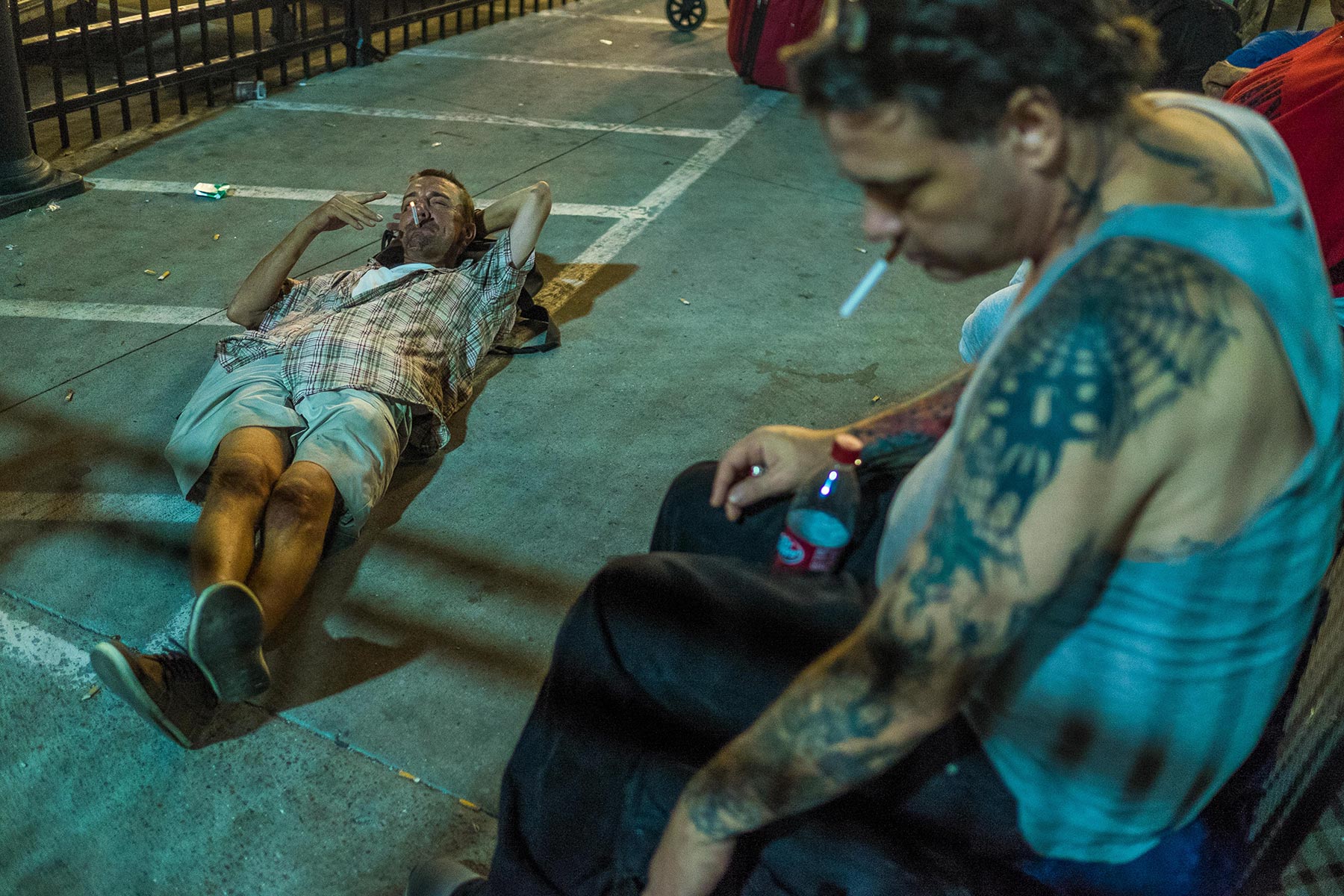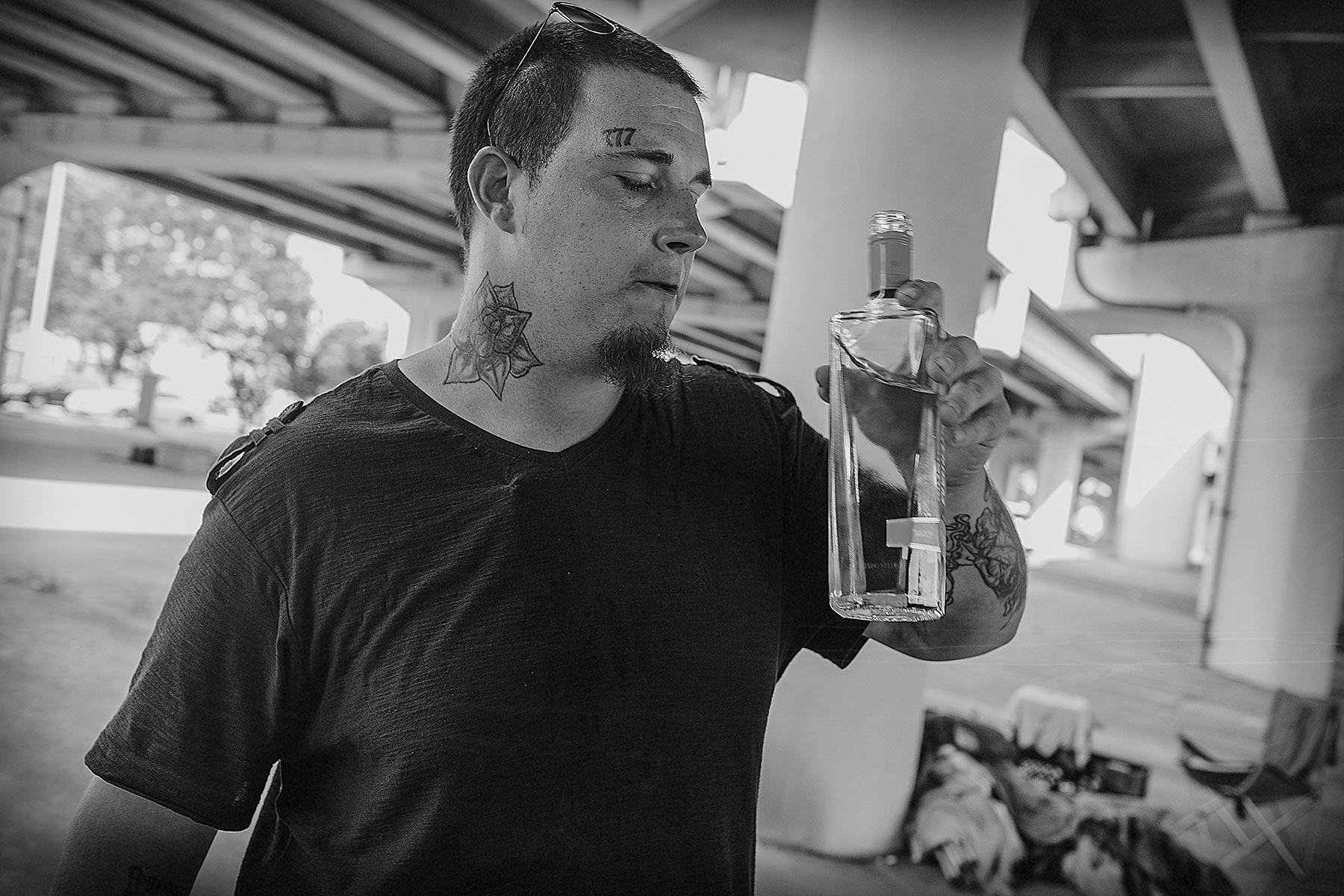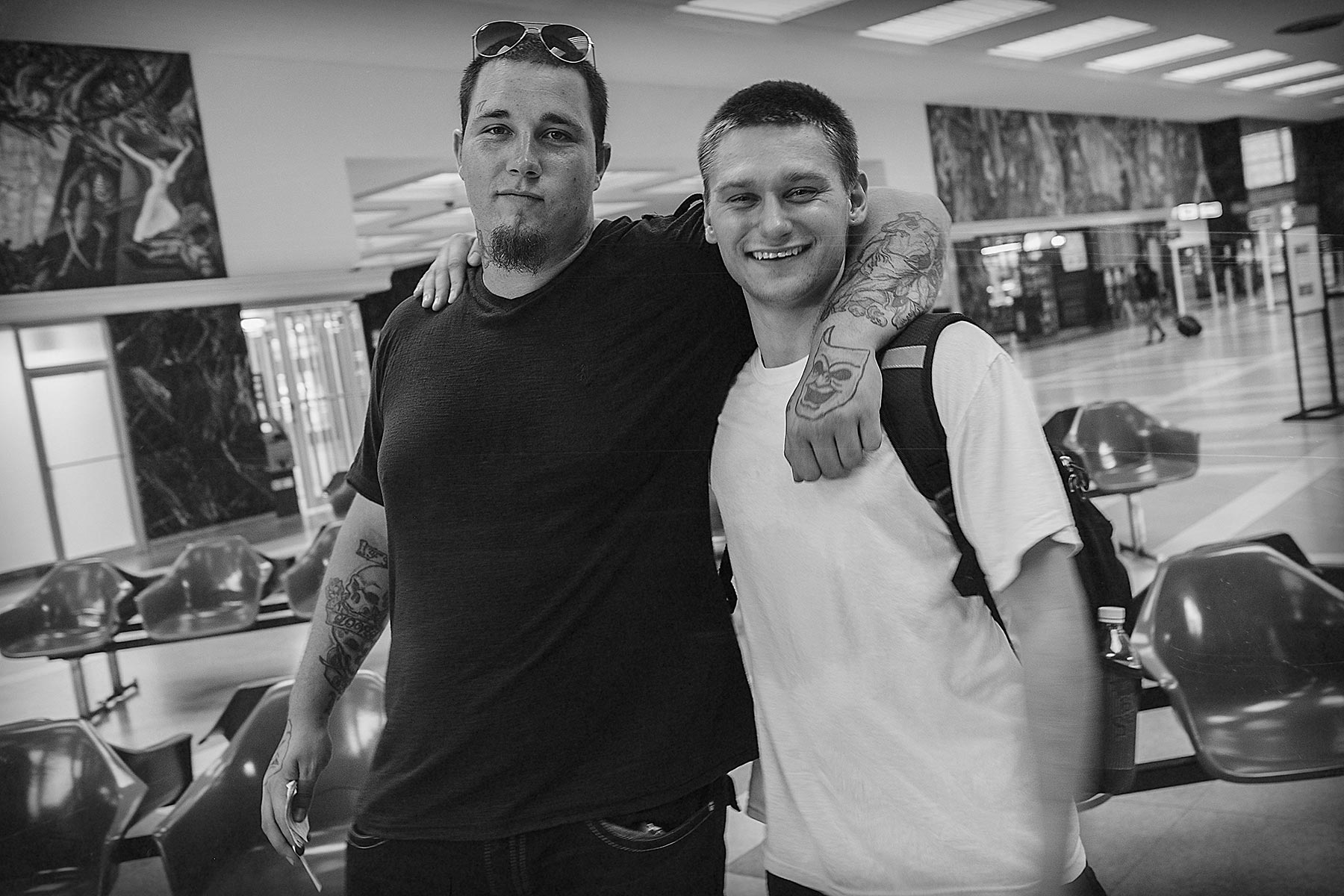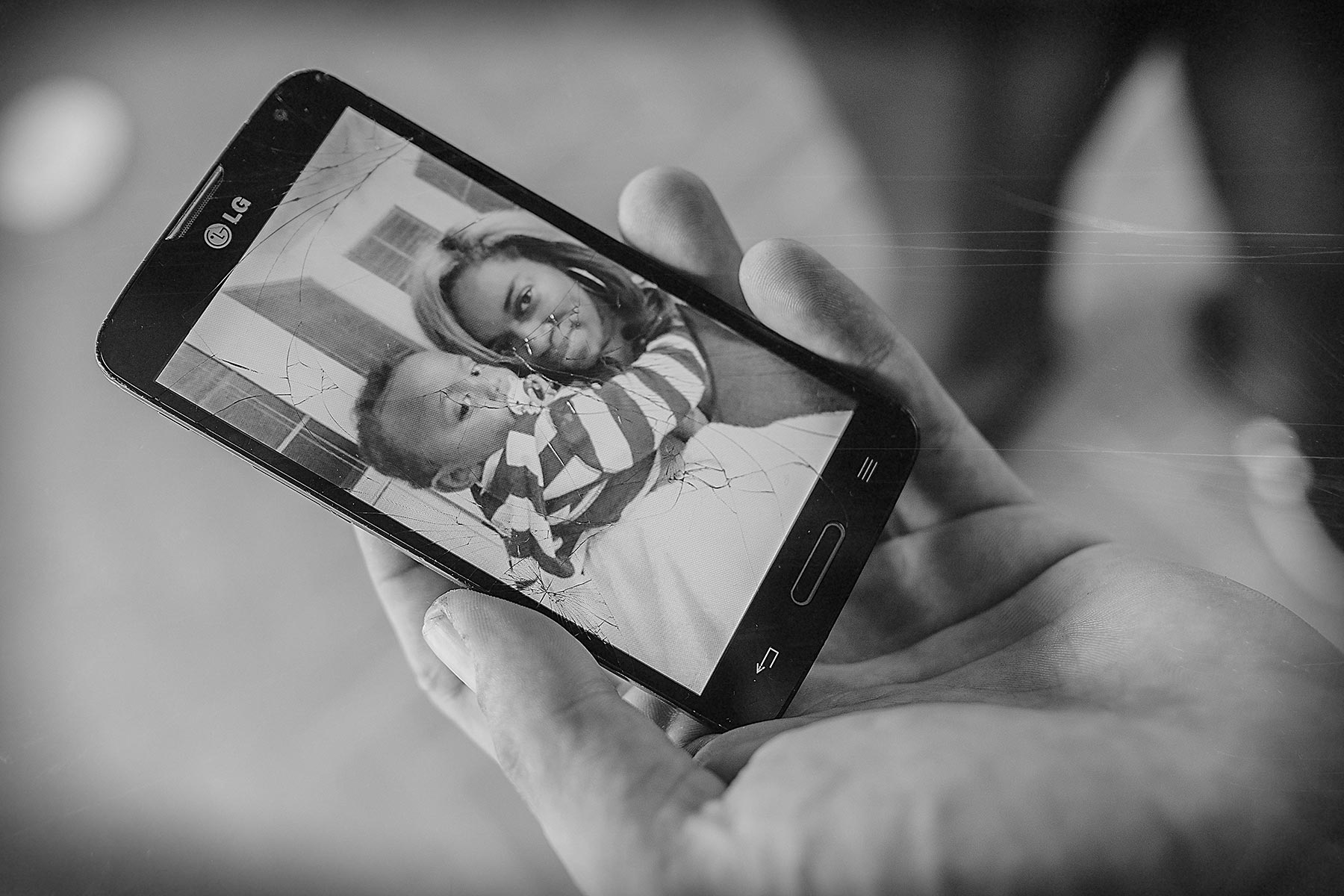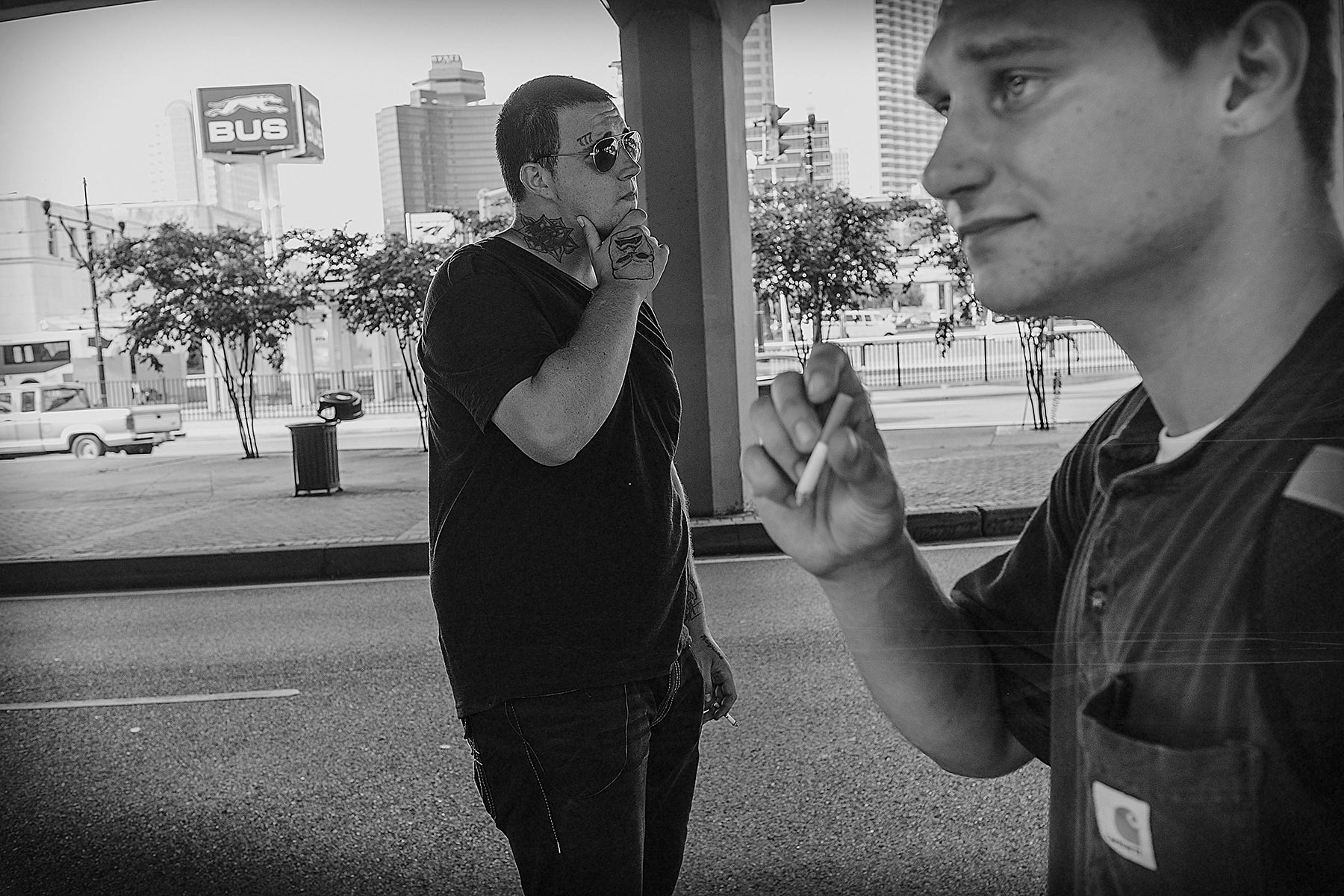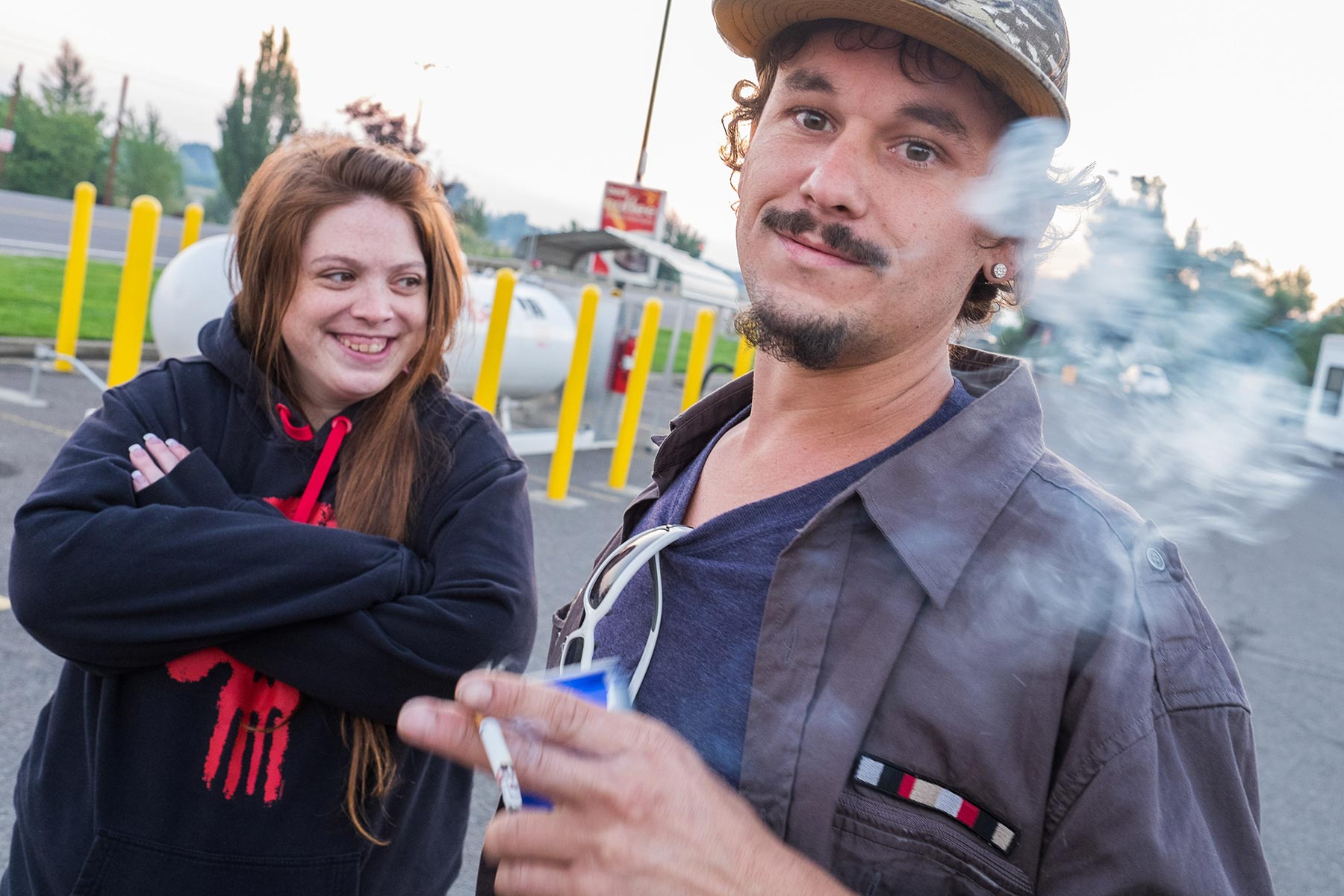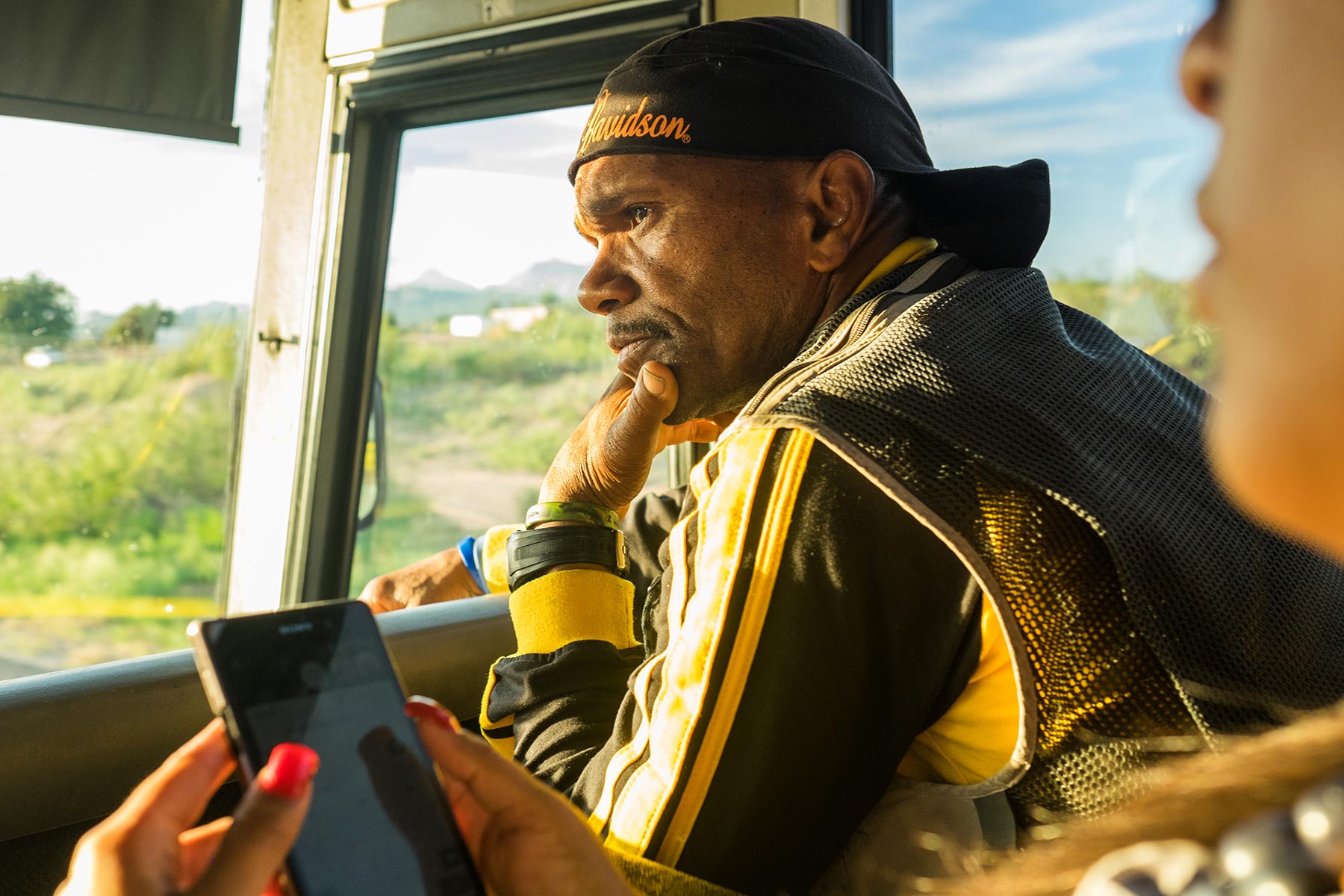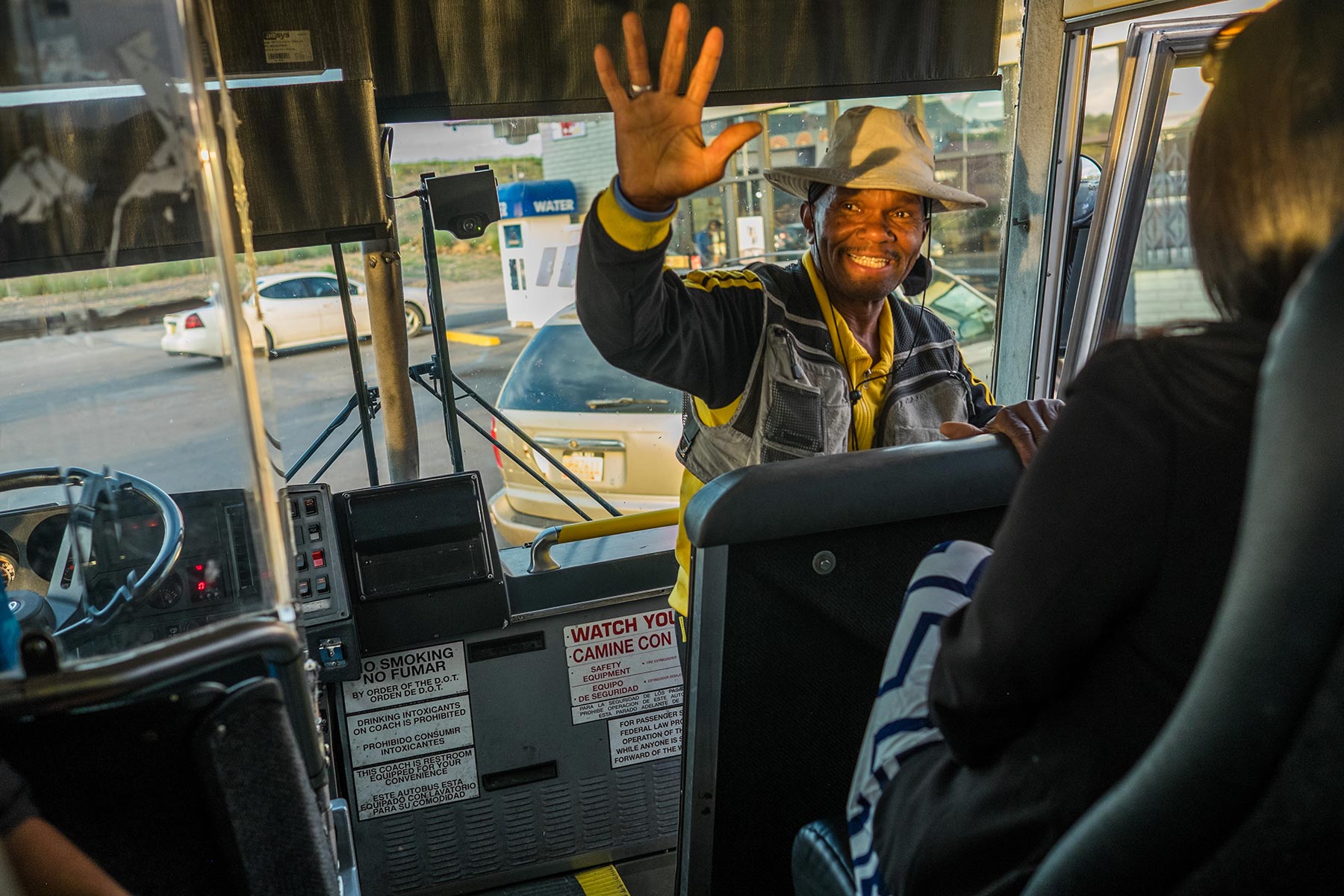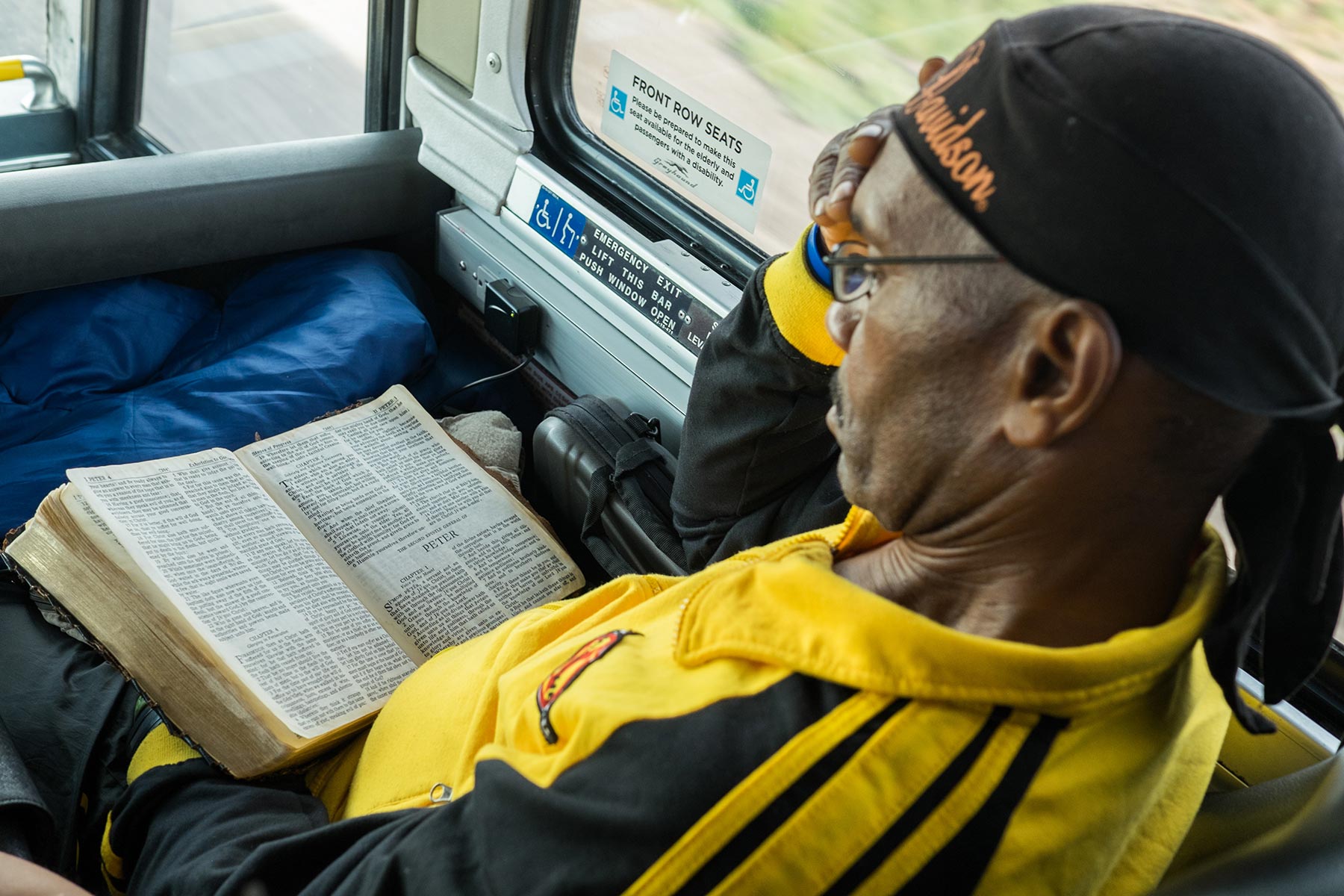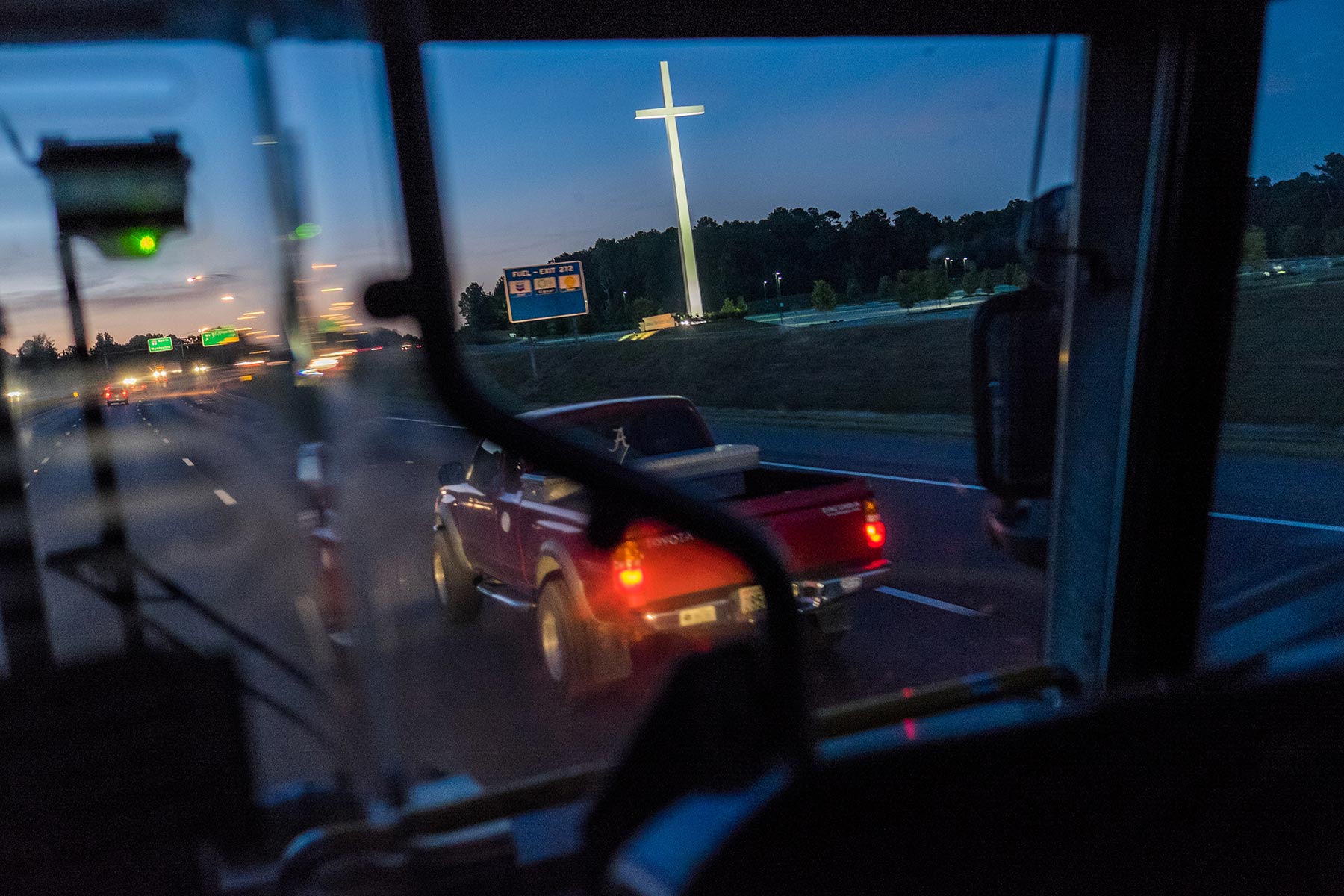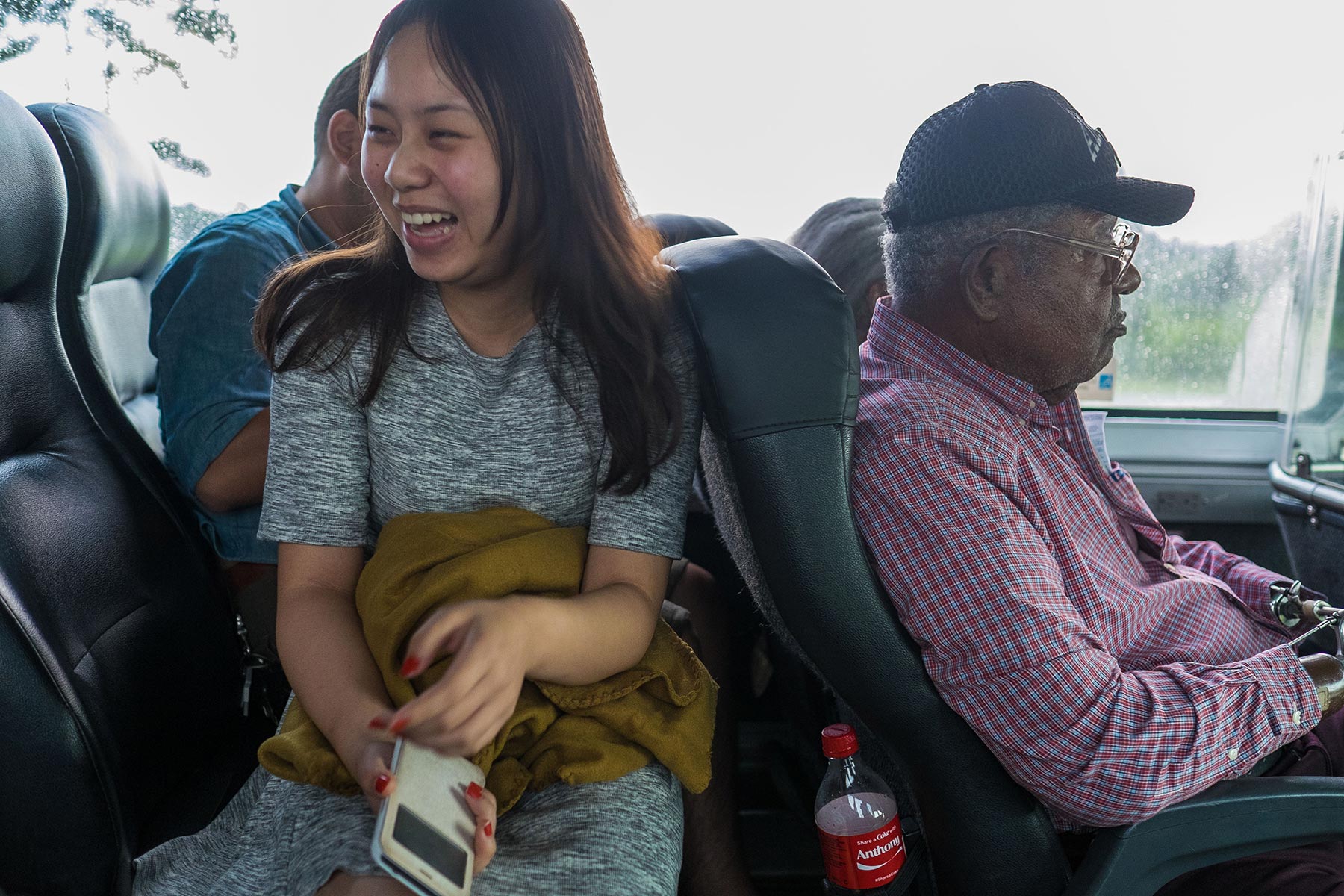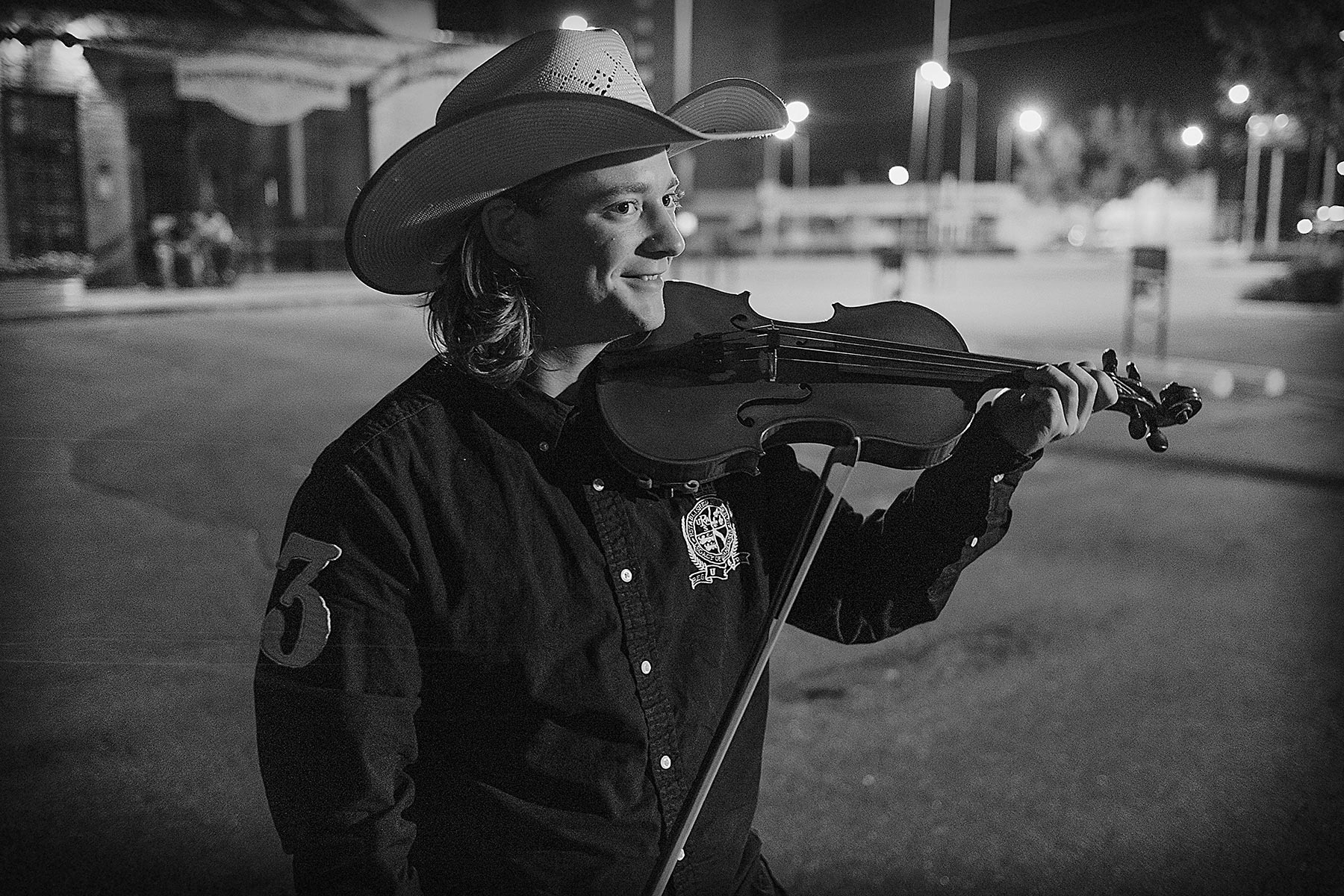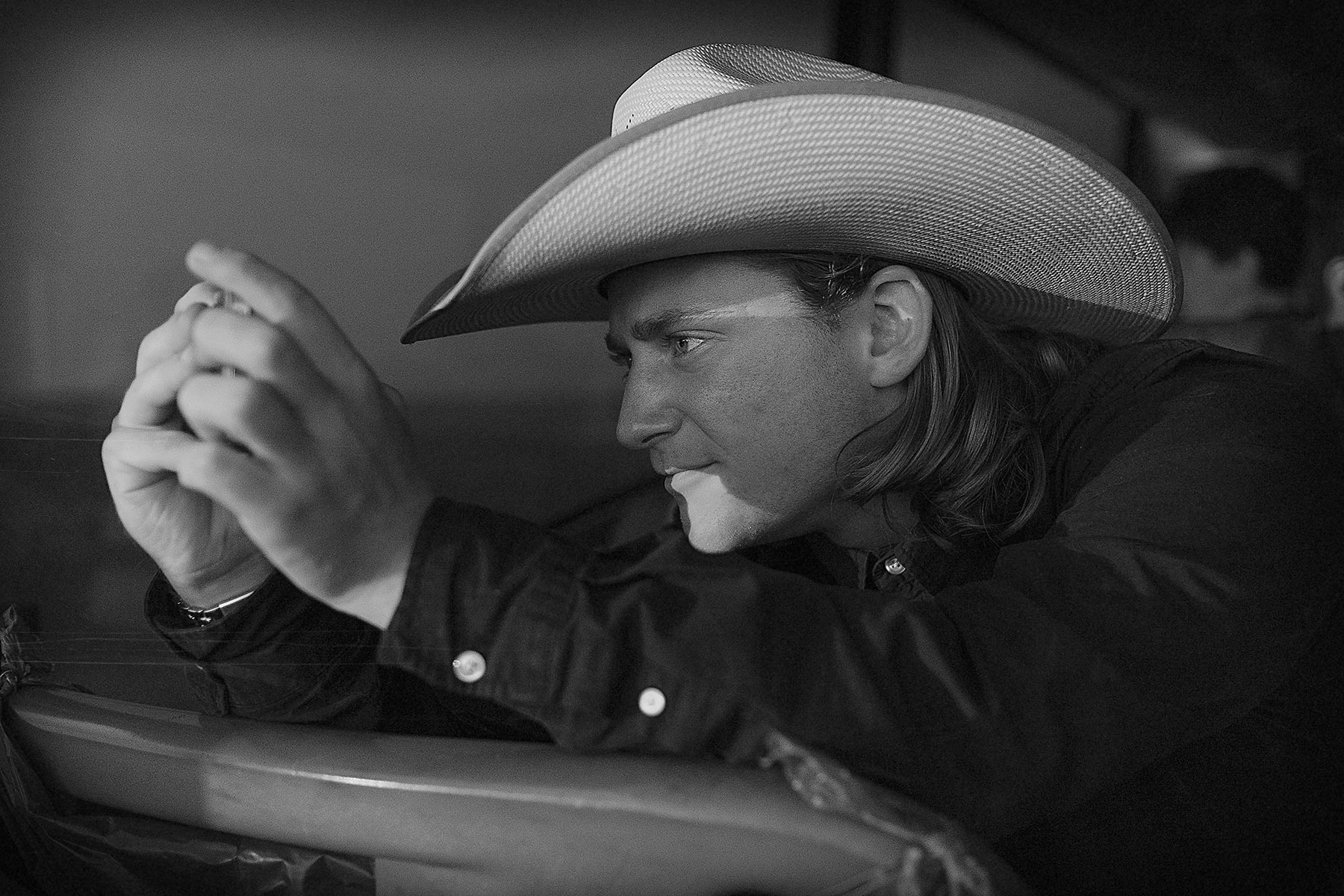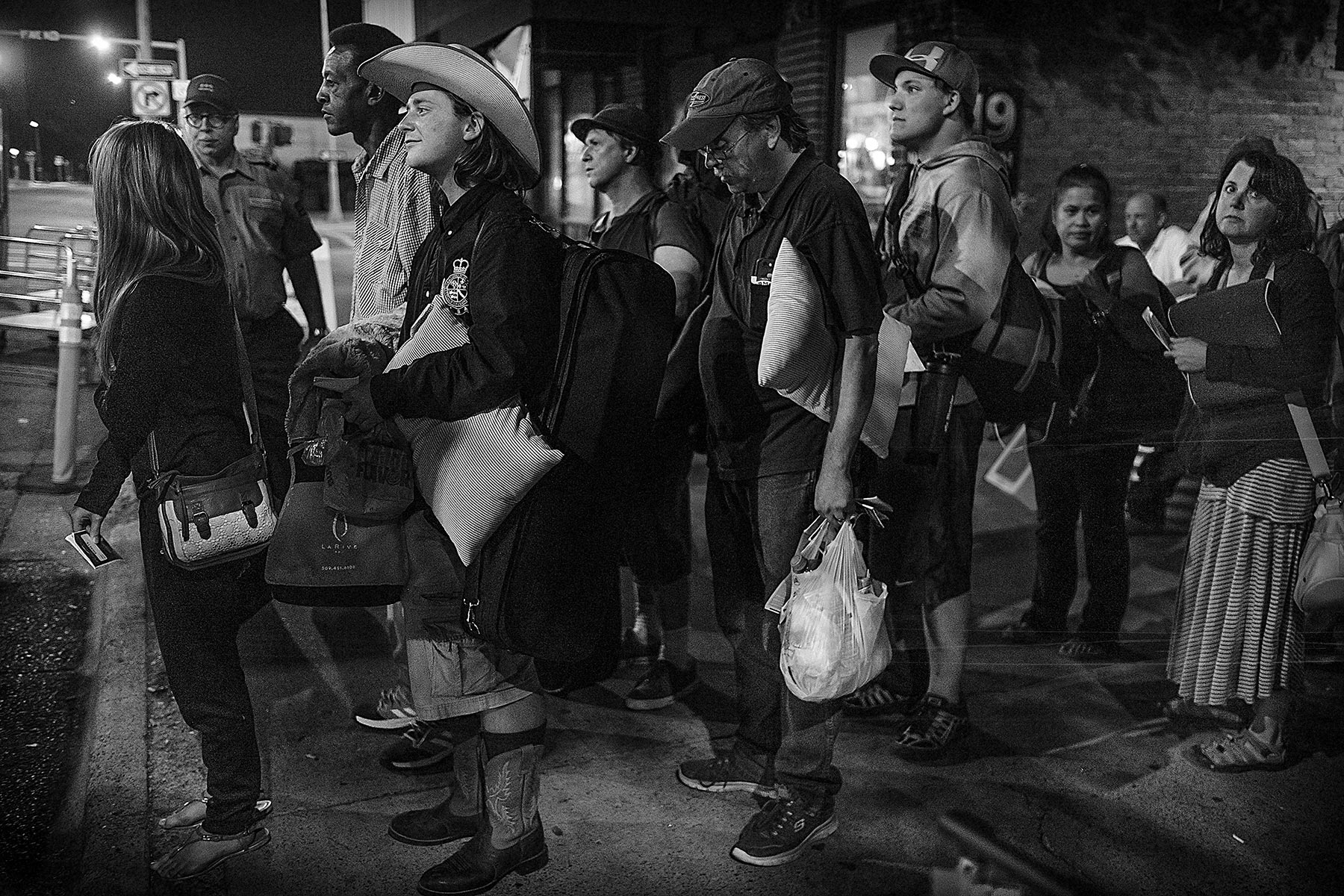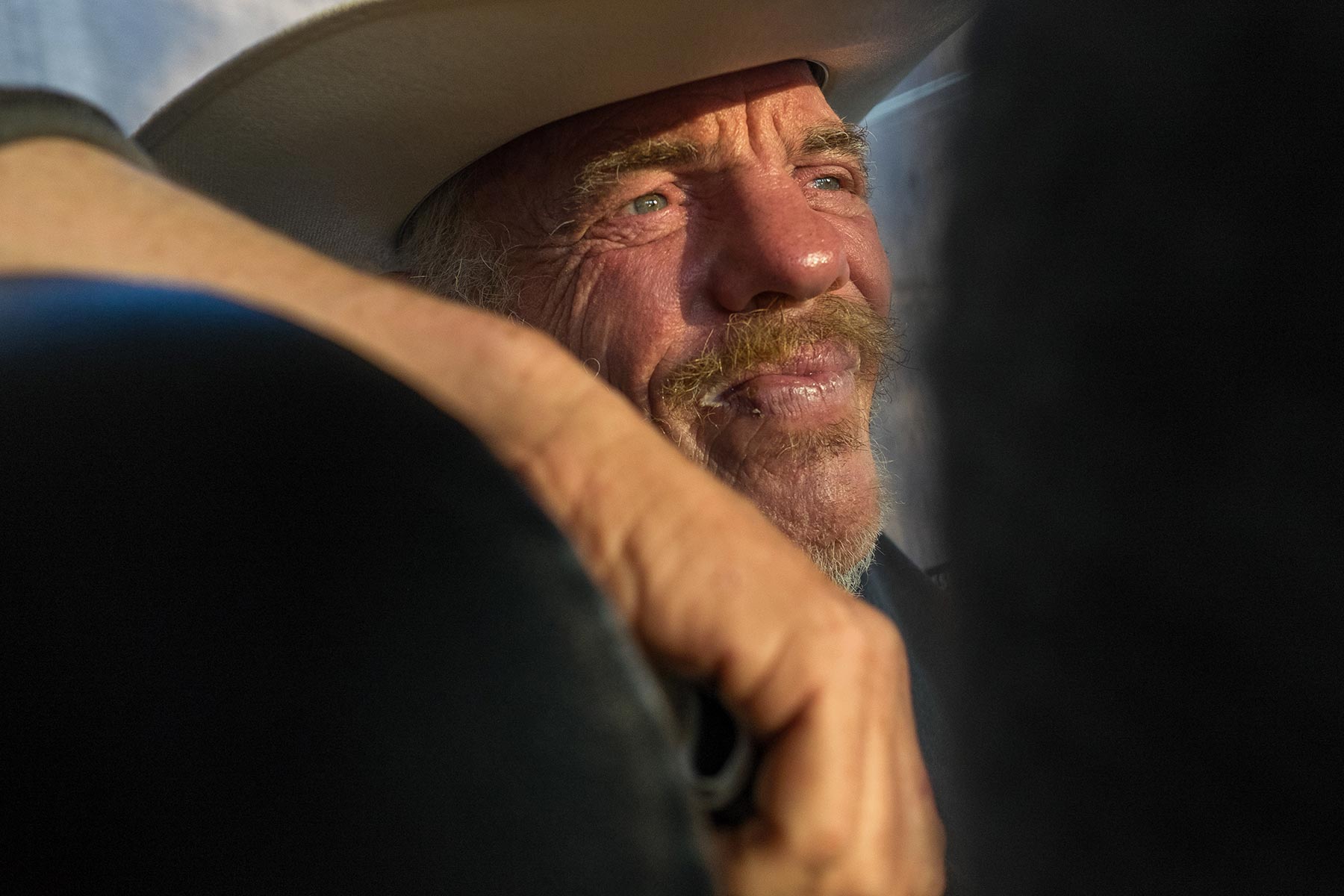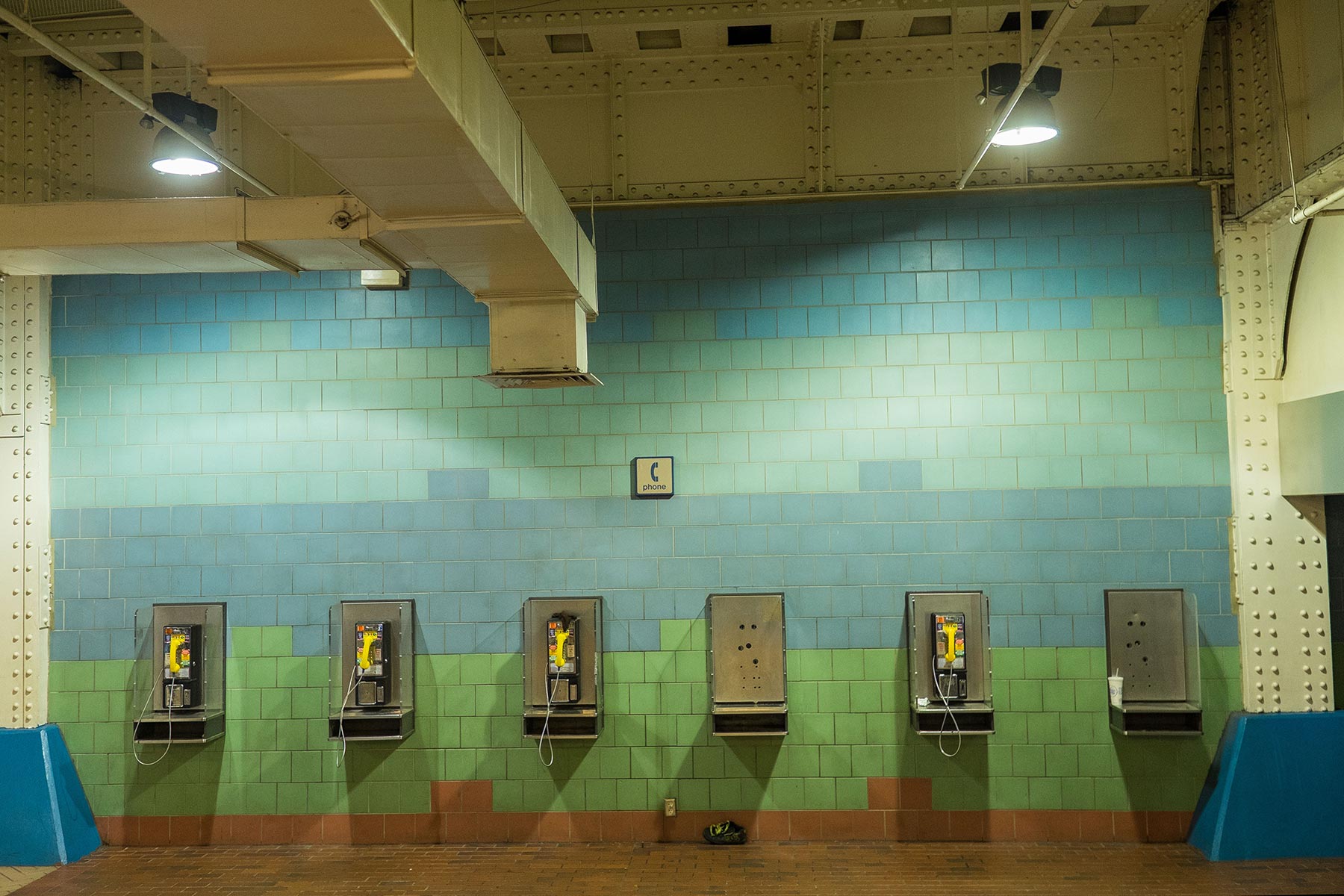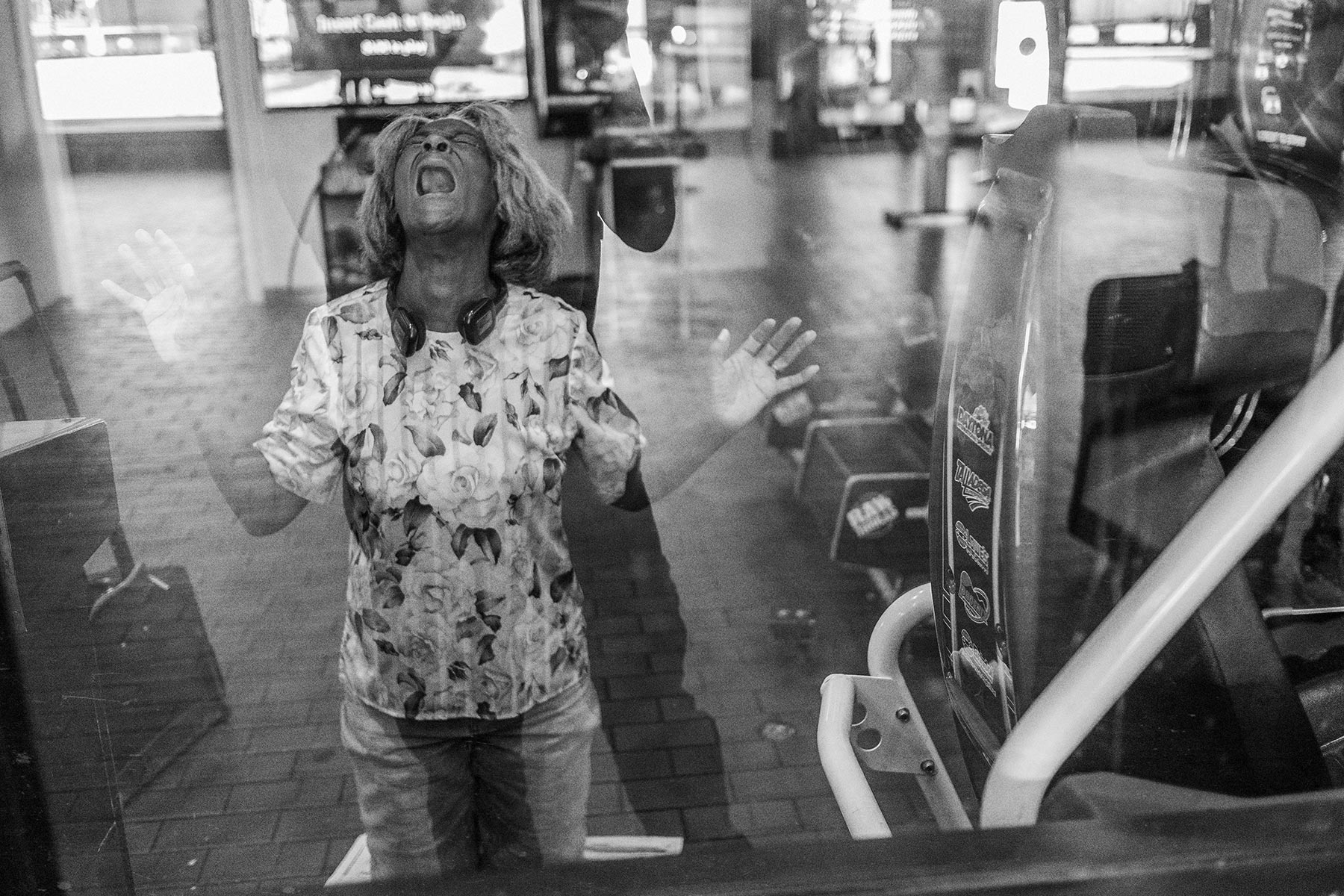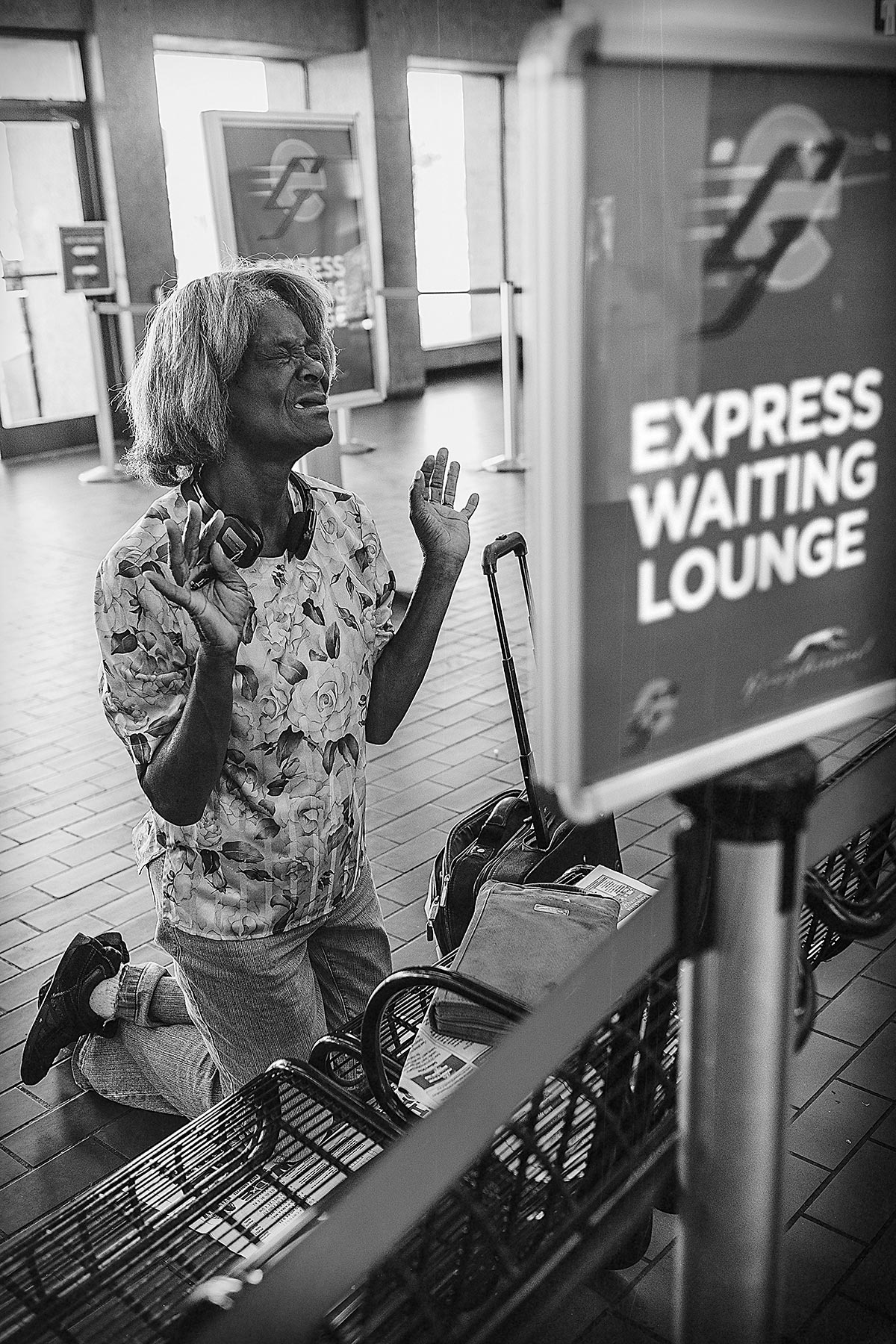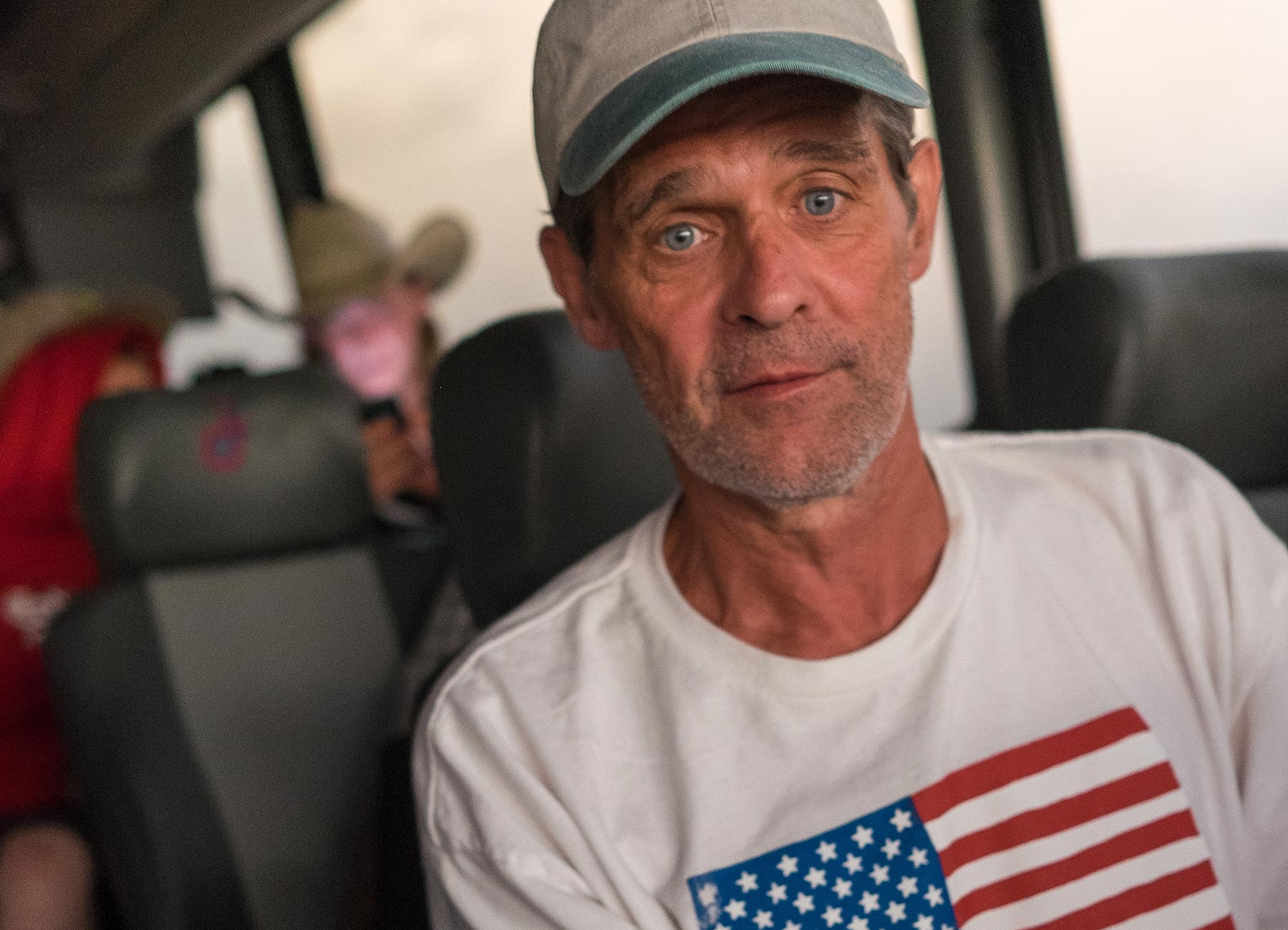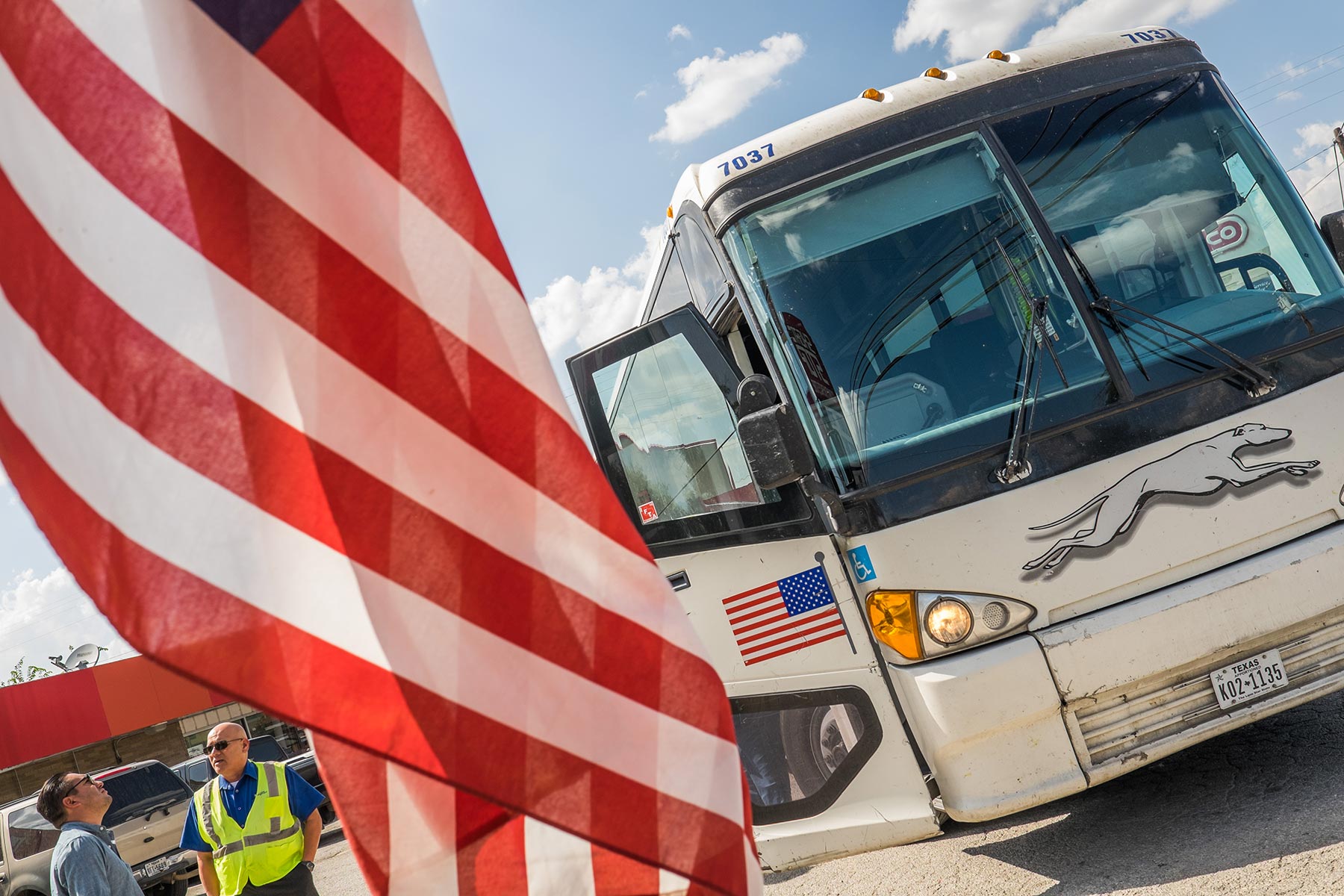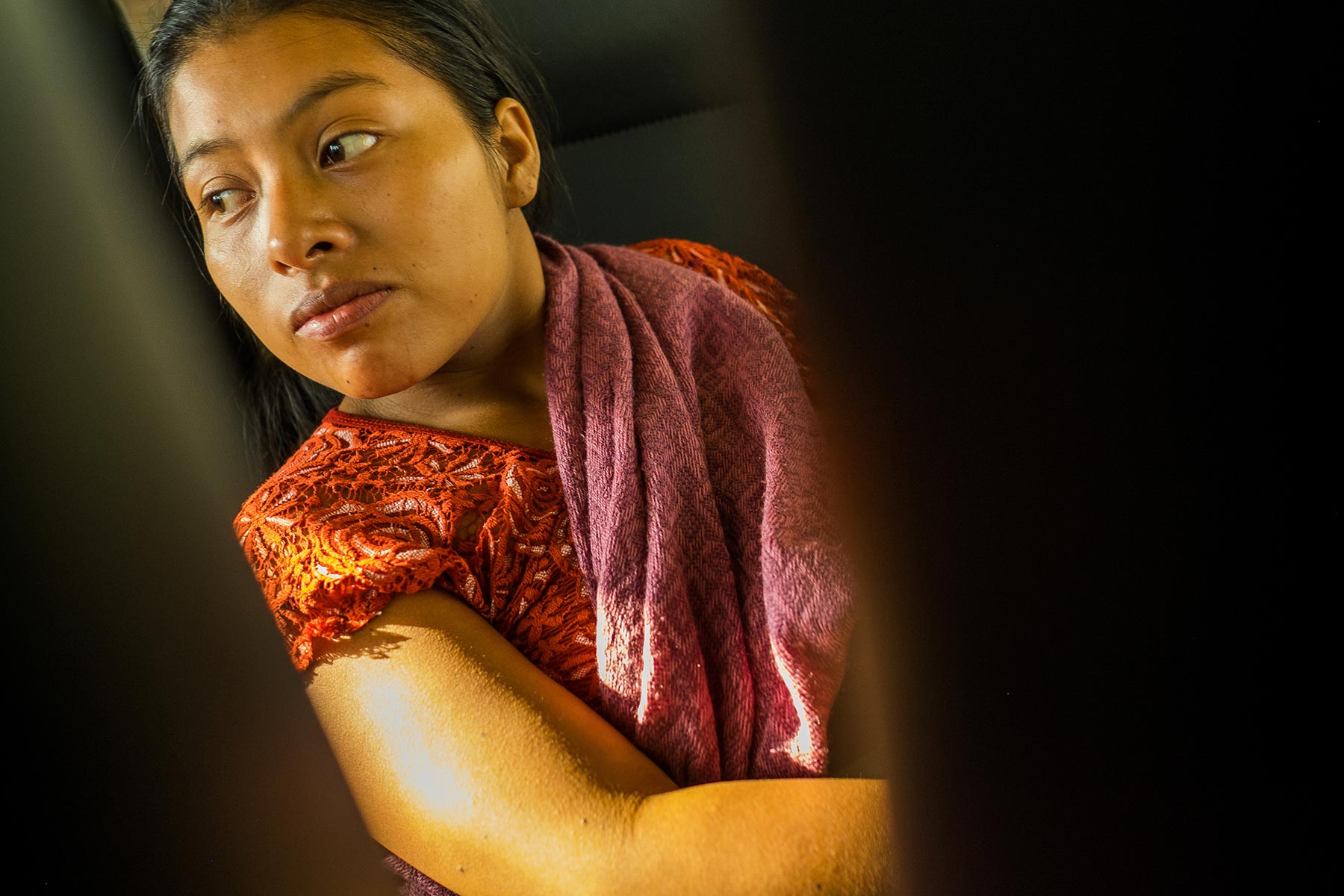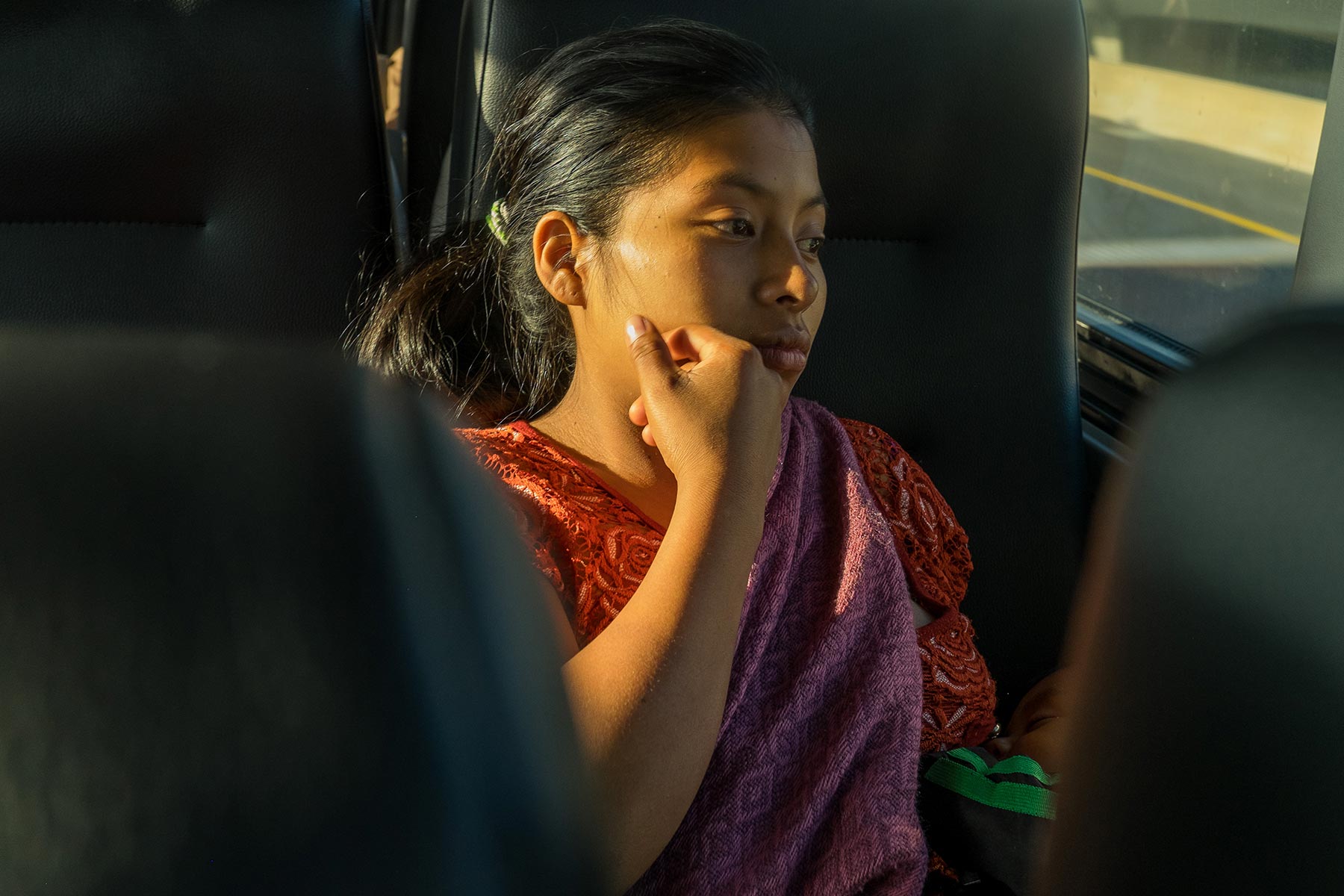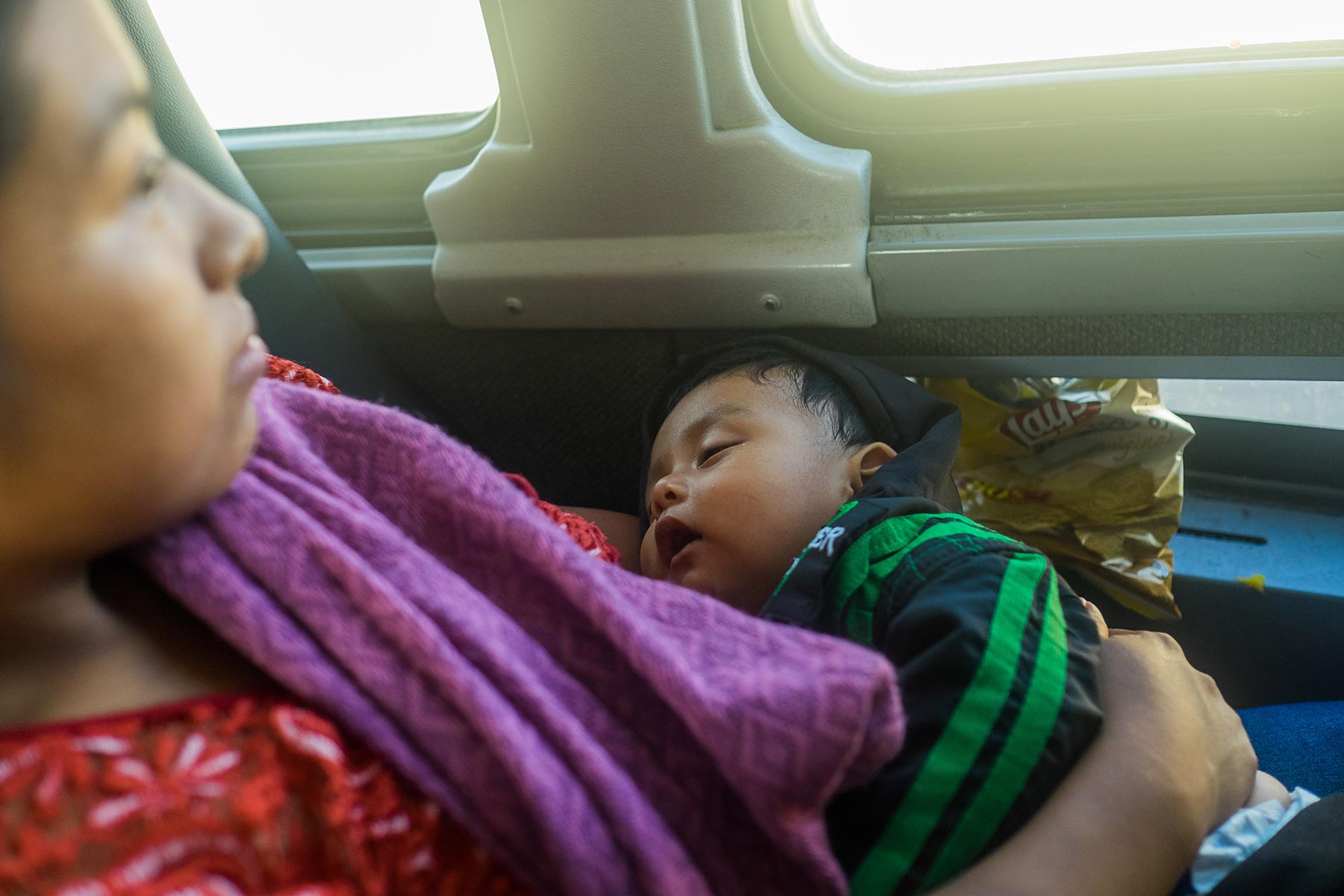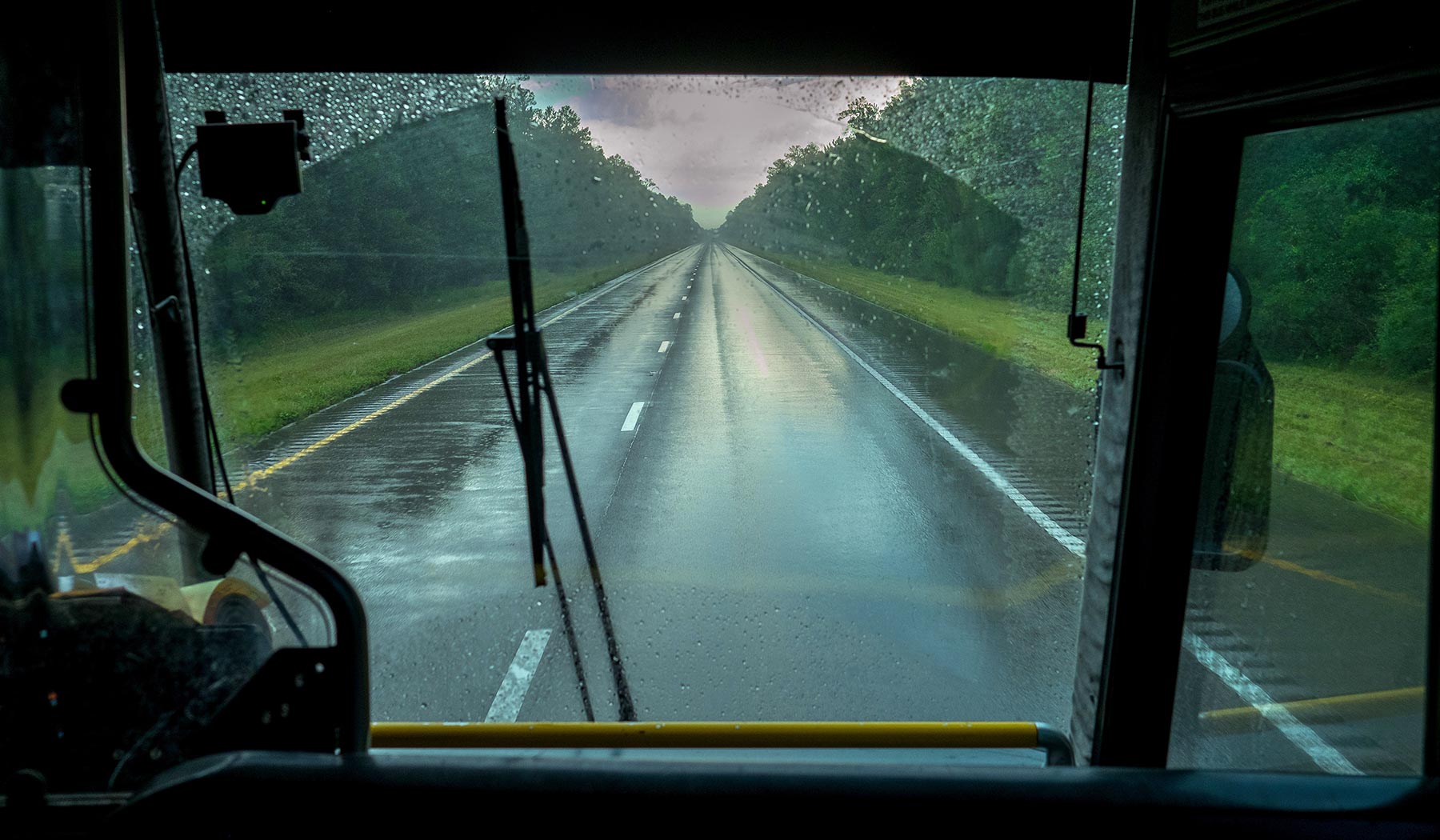
The United States of Bus Travel
The people you meet in this country are a trip
Dusk, with orange streetlights winking on. The bus groans, hisses and lumbers out of the station heading to New York City, Los Angeles, Seattle or some backwater like Dothan, Vidor or Paoli. Slow and loud, it makes its way down the blacktop, parting traffic like a bull whale. Inside, its dark tinted windows are painted with gestural, greasy smears from cheeks and foreheads. The bathroom — a glorified porta-potty at the back of the vehicle — is soaked in neon blue deodorizer. The air conditioner blows till the bus feels like a meat locker.
The bus driver is overweight and needs a shave. He sets down the rules through an intercom system that pops and fizzles like an old phonograph cylinder: No smoking of any kind. That includes e-cigarettes. No alcohol. No firearms. No bladed instruments over 3 inches and no explosives, fireworks or pyrotechnics of any kind.
“Should you have any of that paraphernalia,” he intones, “please keep it hidden. I don’t want to see it. If I do, I’m obligated to report it, and I will, which means I pull over, call the highway patrol, and then everyone is delayed in their journey as we wait for them to haul you off.”

Scroll for more


This is the journey. You pick a bus company — like Jefferson Lines, Badger Bus, Hoosier Bus, Starlight Express or Greyhound — and you settle in for the long haul with some 50 other people. On the outside, the bus will be lustrous chrome and steel with a bright paint job. On the inside, there will be cloth or leather seats that haven’t seen much more than a quick wipe down over the last few weeks, a patina of grime on armrests and windowsills.
You’ll eat from vending machines filled with Funyuns, Doritos, Cheetos, Cheez-Its, Skittles, lemon sandwich crèmes and Orange Dream bars. If you’re lucky, your bus will pull off the freeway for a McDonald’s, Burger King or Taco Bell, which will provide you with the semblance of a solid meal.
Your trip may take anywhere from a few comfortable hours to days, depending on how far you’re going. New York to Boston? Four hours and 20 minutes. New York to Los Angeles is closer to 68 hours. Seattle to Portland may take four hours and 15 minutes. Seattle to Miami, 80 hours and 35 minutes. But that’s only if your bus is on time and you don’t miss your connections.
The bus is almost never on time.
When the bus stops at a Flying J, Gulf, Cenex or Shell station, you’ll bolt for a clean bathroom, grab a bag of chips and suck down a cigarette — your first in at least three hours — and you’ll savor it, every blast of nicotine, every cloud of smoke that rolls in and out of your lungs. You’ll smoke it right down to the butt, and if there’s time, you’ll light another. If you’re broke, someone might give you a smoke. If someone else is having hard times, maybe you’ll share one of yours.
Movement and trajectory have always been at the heart of the American experience, from the merchant ships and caravels of the oceans to the diesel engine and blacktop highway of the plains. Think of it — Gold Rush, Great Migration, Sand Creek Trail, Mormon Trail, Trail of Tears, La Bestia. The reasons for being on the road now aren’t that different, really. Some passengers are dislocated, others trying to escape. Some need help, with a few ready to give it.
Consider the bus as an unlikely filter of whatever can be deemed the real America, what’s left of the mythical Western stagecoach that pulled together unlikely neighbors as close as a coat sleeve. There’s a reason foreign tourists and students and poets end up on the bus: to see the real pilgrims of this country, the searchers most of us don’t even see, with stories that may never have resolutions. America — her space, solitude, triumphs and sadness.
From Los Angeles, covering the country route by route
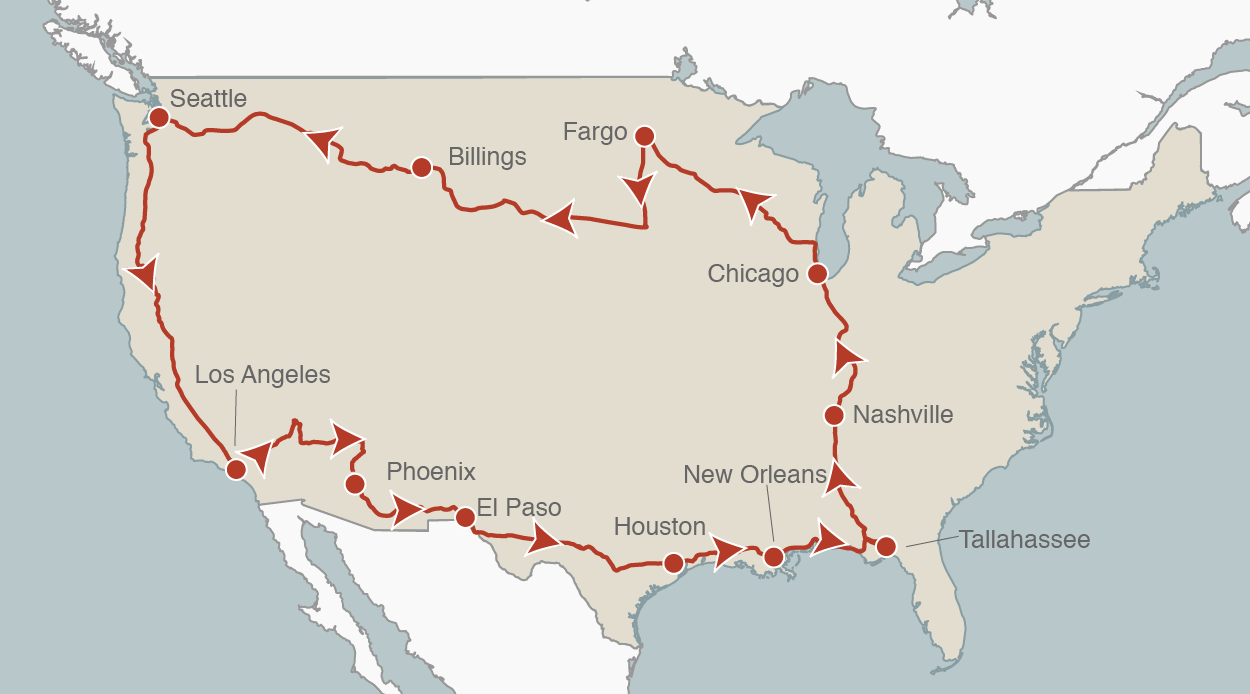

Scroll for more




Scroll for more


In 2013, 3,801 buses hit the roads in North America. They carried 605 million passengers 1.68 billion miles on 303 million gallons of gasoline. Approximately 28 percent of those riders were seniors, 21 percent were students, and the rest were classified as others. All flowing through the system like water on a prayer wheel.


